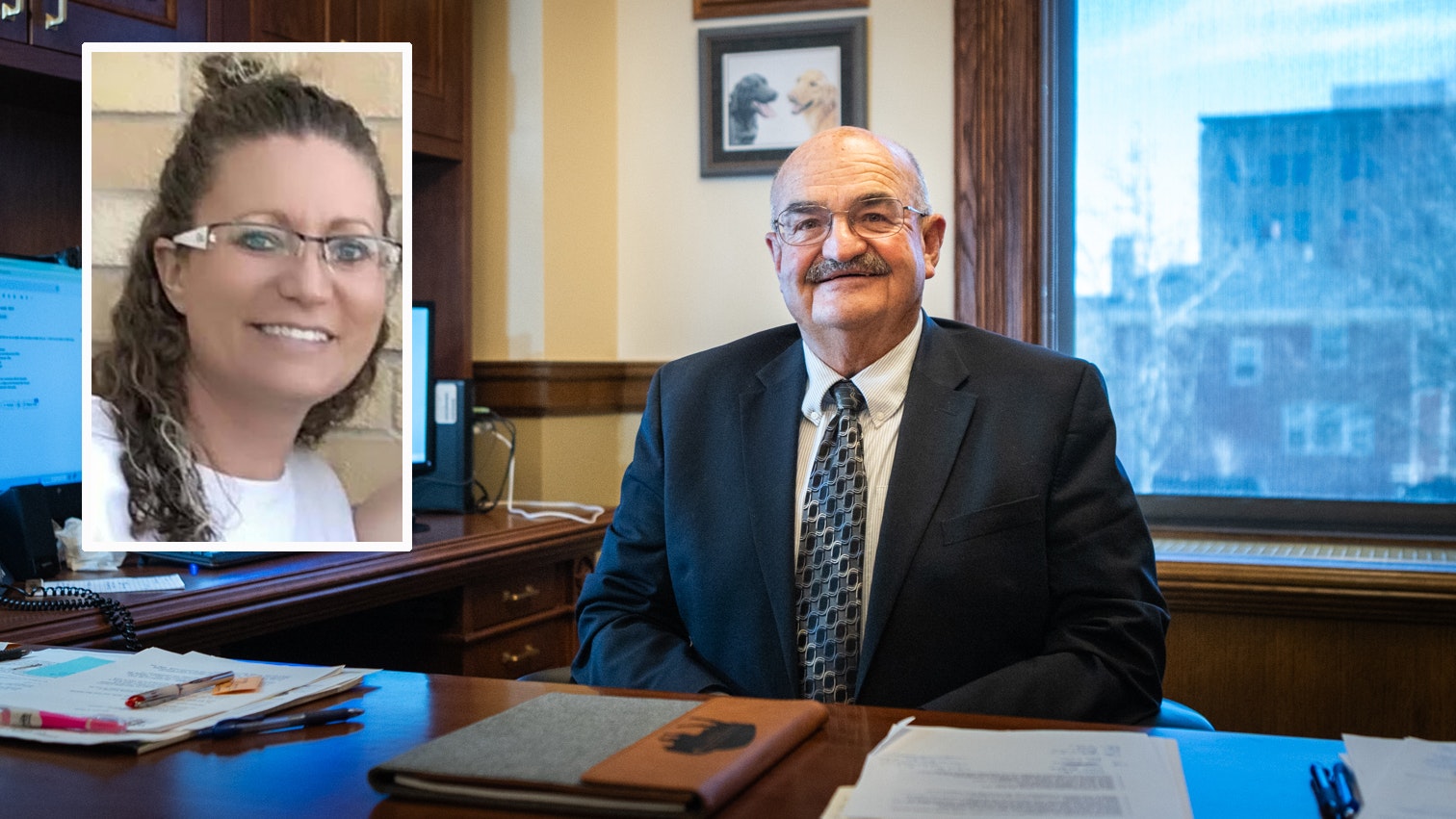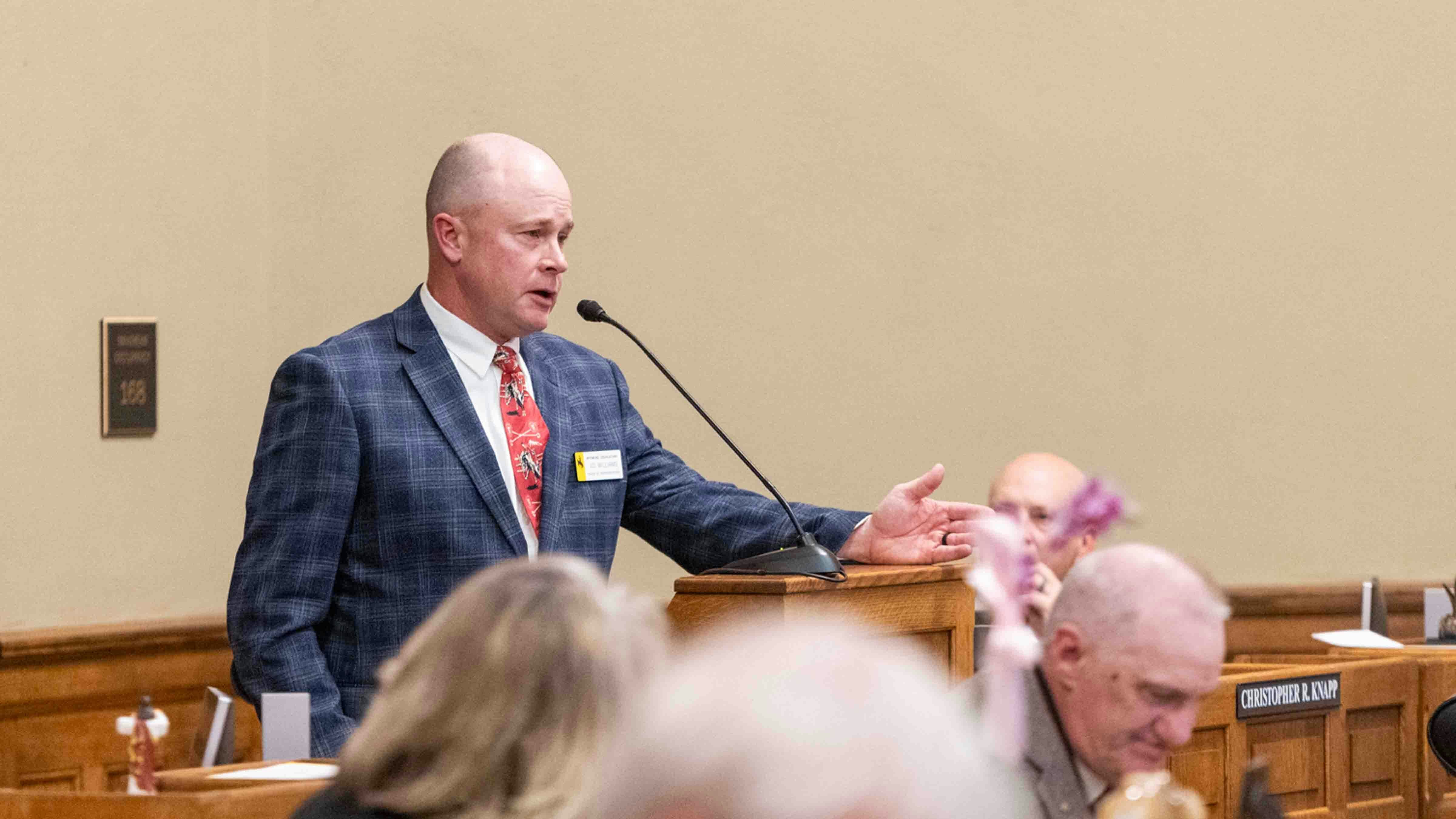WASHINGTON, D.C. — Brian Nesvik of Wyoming was on the verge of Senate confirmation Thursday to lead the U.S. Fish and Wildlife Service, with Republicans working long hours to counter blanket stalling by Democrats of President Donald Trump’s nominees.
The Senate Environment and Public Works Committee approved Nesvik’s nomination on a 10-9 party-line vote nearly four months ago on April 9. But only this week did Senate Republican Leader John Thune of South Dakota finally get around to initiating floor action on Nesvik.
Thune filed a motion Wednesday to end floor debate on Nesvik’s nomination. That set up a vote likely to be held Friday on the motion, to be followed by a final vote, which will be on the nomination itself.
That long delay for Nesvik’s confirmation is unacceptable, said Senate Republican Whip John Barrasso of Wyoming on the Senate floor Thursday.
The committee vote “was 112 days ago,” which raises “the issue of nominations in general,” Barrasso said.
“The people of Wyoming ask me on weekends: ‘Why hasn’t Brian been confirmed yet? … Why isn’t he in the job today?’” Barrasso said. “Let me tell you why: really unprecedented Democrat obstruction.”
Barrasso said Nesvik was among 161 nominees awaiting floor votes — all of them having cleared committees, routine paperwork requirements and FBI background checks.
“Each and every one of them is now stuck in what I consider Senate procedural purgatory,” said Barrasso, whose party holds a 53-47 edge in the chamber. “They’ve been stalled, they’ve been stonewalled, and systematically delayed by Senate Democrats.”
‘Absolutely Zero’
The Democrats cannot block any nominees but they have the power to demand a period of debate as well as time-consuming roll call votes on any one of them. The total number of jobs requiring Senate confirmation is about 1,200.
Traditionally, the minority party allows some non-controversial nominations to proceed with quick voice votes, or by unanimous consent. Sometimes dozens of nominees are moved at the same time under such fast-track procedures.
This term of Congress, Barrasso said that’s been, “Zero. Absolutely zero nominees have been confirmed by voice vote. That’s totally unprecedented.
“President Trump is the only president in modern history to not have a single nominee confirmed by voice vote.”
Democrats have not allowed anyone to move under unanimous consent either, Barrasso spokeswoman Laura Mengelkamp confirmed to Cowboy State Daily on Thursday. The only nominee not stalled by Democrats was Marco Rubio, confirmed to be secretary of state on a 100-0 roll call vote.
Many of the posts requiring Senate confirmation are obscure. Thune’s action on Nesvik was paired with an identical action on Trump’s pick to be the ambassador of Uruguay.
116 And Counting
As of Thursday afternoon, Mengelkamp said the Senate had confirmed 116 nominees since Trump’s first day in office.
In recent terms of Congress over the same time period — January through July — the numbers have been higher. Barrasso said the number in Trump’s first term was 133, and in President Joe Biden’s term 150.
But the main difference is how many more hours the current Republican majority has had to work to move the nominees, holding sessions well into the night because of the Democrats’ stalling.
In the previous terms of Congress that Barrasso cited, he said 155 nominees were cleared by voice vote from January through July. The GOP held control of the Senate for all of Trump’s first four years, as well as the first two years of Biden’s presidency.
The highest-level nominees, such as Cabinet secretaries, are subject to 30 hours of Senate debate. Nesvik is not among those, Mengelkamp said. But still, the lesser threshold for him and most others has added up to long hours.
Recess In Limbo
The Senate, along with the House, typically spends the whole month of August in recess. It remained unclear Thursday whether the Senate would scrap the recess, or a significant part of it, to move ahead with the nominees.
U.S. Sen. Cynthia Lummis, R-Wyoming, recently called for the cancellation of the recess to push through the nominees.
Barrasso said Thursday that “Republicans will do what needs to be done to get President Trump’s team in place.”
Added U.S. Sen. John Cornyn, R-Texas, on Thursday: “We need to either stay here or change the Senate rules” that the Democrats are using for delay.

Nesvik Background
Lummis sits on the Environment and Public Works panel, known as Senate EPW, that approved Nesvik’s nomination.
Barrasso introduced Nesvik at a March 26 hearing of that committee. He, Lummis and U.S. Rep. Harriet Hageman, R-Wyoming, are strong supporters. So is Wyoming Gov. Mark Gordon, a Republican who spoke at that hearing.
The Fish and Wildlife Service administers the Endangered Species Act.
Hageman, Lummis and Barrasso have repeatedly sought to remove the Yellowstone-area grizzly bear from the ESA list that protects them. They say the bear is fully recovered, increasingly posing a threat to people and livestock.
Hageman’s bill to delist the animal recently passed a House committee.
On Thursday, she and Lummis introduced broader legislation to change the ESA.
Nesvik sailed through the March hearing, which even featured a cordial exchange between him and U.S. Sen. Alex Padilla, D-California. But Padilla said Trump’s broader agenda — rolling back environmental rules and promoting fossil fuels — led him to vote no on Nesvik.
The Sierra Club issued a statement the day of the hearing opposing Nesvik, saying Trump had a “pro-polluter agenda” with “no interest in protecting wildlife.”
Although the Democrats have delayed every nominee except Rubio, and many nominees have been non-controversial, a handful have been contentious and received some GOP opposition. No nominees have been voted down.
USFS, BLM
Other U.S. government jobs bearing heavily on public lands have yet to be filled.
On Tuesday, the Senate Agriculture, Nutrition and Forestry Committee advanced Michael Boren of Idaho to lead the U.S. Forest Service, voting 12-11 along party lines to send the nomination to the floor.
That committee in June held a hearing on Boren, a billionaire tech entrepreneur and rancher who frequently clashed with the Forest Service.
Meanwhile, the Bureau of Land Management is in flux.
Kathleen Sgamma, president of the Denver-based oil industry lobby group Western Energy Alliance, was nominated to run the BLM but withdrew in April.
She suddenly dropped out amid revelations that she criticized the president on social media over the riot at the U.S. Capitol on Jan. 6, 2021.
Trump has yet to nominate someone new.
Barrasso sits on the committee that would weigh the new BLM nominee — Senate Energy and Natural Resources.
Sean Barry can be reached at sean@cowboystatedaily.com.





